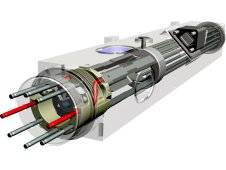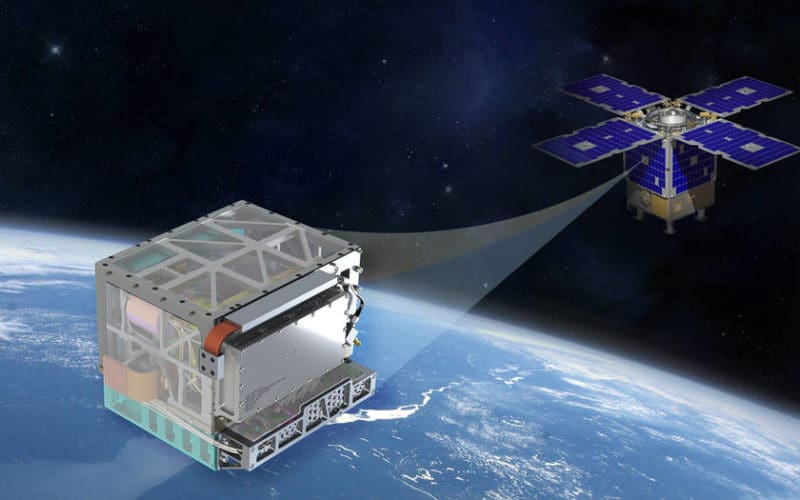While most navigators using GPS rarely ever think of it, the heart of every GPS satellite are four cesium or rubidium atomic clocks that provide a precise time standard for calculating position. Without atomic clocks, GPS would be little more accurate than the previous Navy Transit Satnav system. And just as voyagers can make use of GPS on the surface of the earth, future spacecraft to Mars and other distant destinations can make use of precise atomic time standards to navigate. NASA is taking a step in this direction by testing a new, smaller, lightweight atomic clock package called Deep Space Atomic Clock (DSAC). The DSAC package will ride aboard a new satellite called the General Atomics Electromagnetic Systems Orbital Test Bed satellite, which is scheduled to launch aboard a SpaceX Falcon Heavy rocket this month. Below is a summary of what the DSAC unit will provide:
-
Moon to Mars: At the Gateway, NASA’s future station in Lunar orbit, we could demonstrate DSAC in conjunction with an onboard autonomous space navigation system to prove its reliability and accuracy for more ambitious exploration deeper into the solar system. Also, in crowded destinations, such as Mars, DSAC could free up communication time with antennas on Earth. Currently, Earth-based antennas can only send navigation signals to one spacecraft at a time. DSAC antennas could send signals for navigation to multiple spacecraft simultaneously.
-
Radio-Based Science: DSAC’s improved timekeeping would enhance the accuracy of a spacecraft’s radio science investigations in any number of areas, such as planetary gravity fields and atmospheres. For example, this innovation could reveal whether the icy moons of Jupiter have sub-surface oceans, or the composition of a planet’s atmosphere.
-
GPS Clock Stability: DSAC could also improve future GPS clock stability and, in turn, benefit Earth users worldwide. Ground-based tests showed DSAC is up to 50 times more stable than the atomic clocks currently flown on GPS satellites. GPS clocks today require clock corrections uploads twice a day. GPS with DSAC might need a correction only once every few months!


